Mediation
Third Circuit Mediation is comprised of several different categories:
As a result of COVID-19 the Florida Supreme Court has temporarily modified the rules governing mediation, which now allow for remote attendance and electronic signatures for parties in family law, small claims and dependency cases. CLICK HERE for more information about Remote Mediation.
Each category of Third Circuit Mediation has a specific set of rules concerning the types of cases that can be mediated, who qualifies for each of them, and cost factors. These guidelines are outlined below:
FAMILY MEDIATION
WHAT TYPES OF CASES CAN BE MEDIATED?
- Dissolution (divorce) actions including any issues concerning child support, parental responsibility, distribution of real and personal property, alimony, etc.
- Changes in child support
- Changes in parental responsibility (time-sharing )
- Paternity actions where paternity has been established
HOW MUCH WILL MEDIATION COST?
Parties with a combined gross annual income less than $100,000 may utilize the court-based program (In accordance with Section 44.108 of the Florida Statutes). The fees for this program are as follows:
$120.00 per person, per session, if the parties’ combined annual gross income is more than $50,000 but less than $100,000.
$60.00 per person, per session, if the parties’ combined annual gross income is less than $50,000.
*Parties are presumed to have the ability to hire a private mediator when their combined annual gross income is more than $100,000 unless the court finds there are extraordinary circumstances which make the parties unable to afford private mediation. For more information about this, see Administrative Order No. 2009-001.
*All fees must be paid at the Clerk of Court’s Office prior to the start of the mediation.
If you have any further questions concerning Family Mediation, call 386-719-1461.
SMALL CLAIMS MEDIATION
WHAT TYPES OF CASES CAN BE MEDIATED?
Small Claims Court cases are those in which one party sues another party for an amount that is less than $8,000.
*Unlike other types of mediation, Small Claims Mediation usually takes place on the day of the pre-trial conference. At the pre-trial conference, the judge will require mediation if the defendant does not agree to the claim that has been filed. Parties involved in small claims cases should come to court prepared to spend the time necessary to mediate their case.
HOW MUCH WILL MEDIATION COST?
Mediation services are provided at no cost to small claims litigants.
COUNTY COURT CASES
Mediation of cases where the amount in controversy is between $ 8,001 – $15,000.00
Mediation fee for County Court cases- $60 per person per scheduled session involving an amount in controversy not exceeding $15,000.
DEPENDENCY MEDIATION
WHAT TYPES OF ISSUES CAN BE MEDIATED?
Juvenile Dependency Mediation provides an opportunity to resolve issues that arise when a family has entered the Dependency system.
- Case planning
- Visitation
- Temporary and long-term placement
- Relative / Non Relative placement
- Family reunification
- Termination of parental rights/Adoption
HOW MUCH WILL MEDIATION COST?
Mediation services are provided at no cost to those involved in dependency cases.
If you have any further questions concerning your dependency case, contact your case manager.
*For more information concerning the state Dependency system, contact the Department of Children and Families, https://www.myflfamilies.com/.
Contact Information:
MORE INFORMATION ABOUT MEDIATION, INCLUDING A LIST OF MEDIATORS IN THE THIRD CIRCUIT, CAN BE FOUND AT THIS WEBSITE: http://drc.flcourts.org/
IF YOU HAVE ANY FURTHER QUESTIONS REGARDING MEDIATION IN THE THIRD CIRCUIT, CALL 386-719-1461.
Frequently asked questions about mediation:
What is mediation?
Mediation is a process where a neutral third party called a mediator acts to encourage and facilitate the resolution of a dispute between two or more parties. It is informal, non-adversarial, and has the objective of helping the disputing parties reach a mutually acceptable and voluntary agreement. In mediation, decision-making authority rests with the parties. All information revealed during mediation is confidential except where disclosure is required or permitted by law or is agreed to by all parties.
An Overview of Florida Mediation.
What is the role of the mediator?
The role of the mediator includes, but is not limited to:
- assisting the parties to identify issues
- fostering joint problem solving
- providing pertinent information and suggestions
- exploring settlement alternatives
The mediator does not make any decisions pertaining to any issue of the case; this means that the mediator DOES NOT:
- determine who is right or wrong
- decide whether the agreement is fair (unless it is inappropriate)
- determine the outcome of the case
- The mediator must honor the parties’ self-determination (the right to make decisions) and must act with impartiality, without undue influence, conflicts of interest, or coercion.
*Mediators do not provide legal advice.
How Long Does Mediation Take?
- Mediation sessions can vary in length from 30 minutes – 4 hours depending upon the case type and related administrative paperwork.
Who Participates in Mediation?
- The parties and their attorneys.
Current Training Opportunities:
Please contact Jana Sullivan, ADR Director for the Third Judicial Circuit at 386-719-1460, for current mediation training opportunities.

